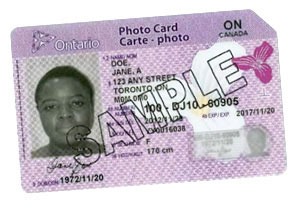I think the migration is inevitable - because lets face it, there is a lot happening in Silicon Valley that isn't happening here, and the pay is through the roof. The temptation is strong, and even with a lot of work being done, I think it's going to still happen at a significant amount.
I think however, even reducing this by a fraction would be a boon for the country.
I think a lot of people underestimate or just don't realize how much the tech sector is a part of the economy in Canada -already- and how much it has grown.
If the number of tech jobs exceeded 15 per cent in an industry, more than three times the national average, it was considered a member of the tech sector.
It found 864,000 employees across Canada are high-tech workers, or 5.6 per cent of total employment in 2015.
The tech sector, which includes 71,000 firms, generated $117 billion of Canada’s total $1.65 trillion GDP last year. More than two-thirds of those firms are small operations with fewer than four employees.
The value and the strength of tech in the country is really high, it's a bit of a hidden unexpected gem and something that I think American companies realized a while ago.
If you can increase retention of high quality talent even by a few percent points, that's going to pay dividends. If you can increase the pool of tech workers/students in the country, that's going to invariably lead to more tech workers we have in the country, considering not only the current opportunity but the rising opportunity that it presents, I think it would be short sighted for the federal government to not consider more options here.
The SRED tax credit is a great example of something that I know from personal experience to be supporting and helping a LOT of startups and small businesses in Toronto comfortably expand and innovate. It's a simple example, but I wouldn't be surprised that it has a strong positive impact on the current tech scene and will continue to drive growth here.
I don't think the answer is just federal tax credits though. I think more investment from the government into particular sectors (which it sounds like will happen in tech, specifically around AI/Quantum/Big Data) could encourage, even just a little, the already burgeoning industries.
I also think a big part of this is an education focus. Maybe go so far as incentive for students to pursue tech related post secondary. Although I think a more fundamental and long term opportunity is a hybrid logic/math/programming courses in grade and highschool.
From what I've seen Waterloo has somehow miraculously survived the vacuum created by RIM's demise - so I guess that talent is still out there presumably working in tech. I think Trudeau is definitely in the right direction, but we have to move past the 'tech' industry just being apps. The apps boom is over. I don't think schools have grasped that yet, I see way too many students at UW working on apps. No one is buying them. We need to identify emerging technologies and pursue those to draw business back into the country (i.e. EVs, Drones, Green Energy, AI/Navigation/Camera technology)
I'd agree that any focus on app oriented approaches isn't going to be a long term benefit - the boom is over, but the economy and the opportunity is still there, so I wouldn't say 'forget it' yet. That being said, I do think that the focus needs to be on emerging tech opportunities, and I think that's what I am reading from Trudeau - AI/Quantum and Big Data. Although Big data is now 'old' in tech years (it was the buzz word of 2014, which is forever ago) - it's coming into it's own now being married to maturing AI technologies. The country already produces some of the best AI engineers in the world, so we need to embrace and continue to encourage that.
Quantum Computing is really interesting, as simultaneously we're seeing incremental breakthroughs throughout the western world, and a decent amount of those coming out of Canada. The opportunities are really high, and additionally, it marries -very- well with both big data and AI. You can see that in Google/Nasa's work with QuAIL - or see what Andy Rubin has to say about it, among other people - basically, the point is that it's smart to invest in all three of these sectors, as in the end you're more or less investing into one subcategory of tech.



